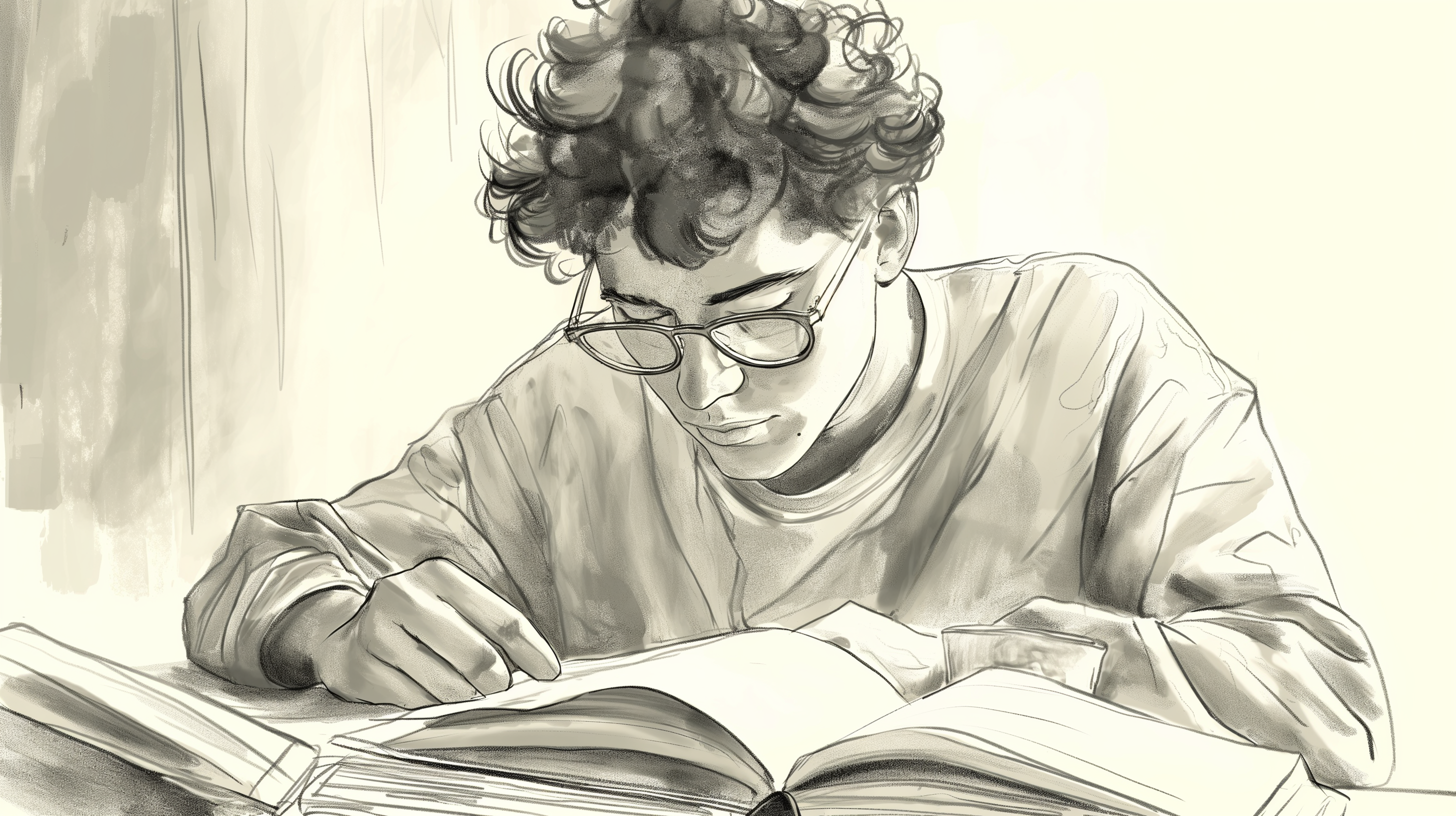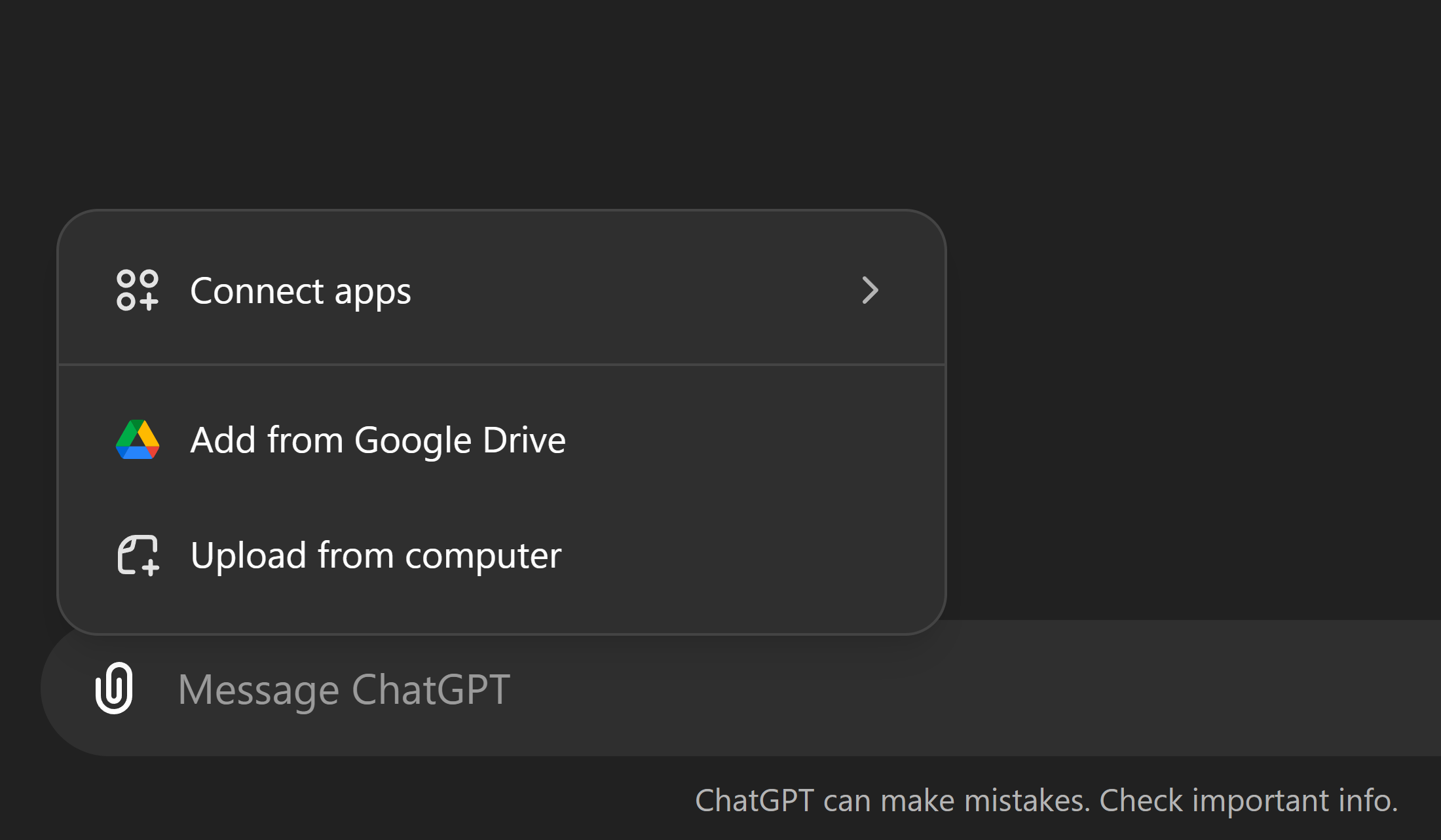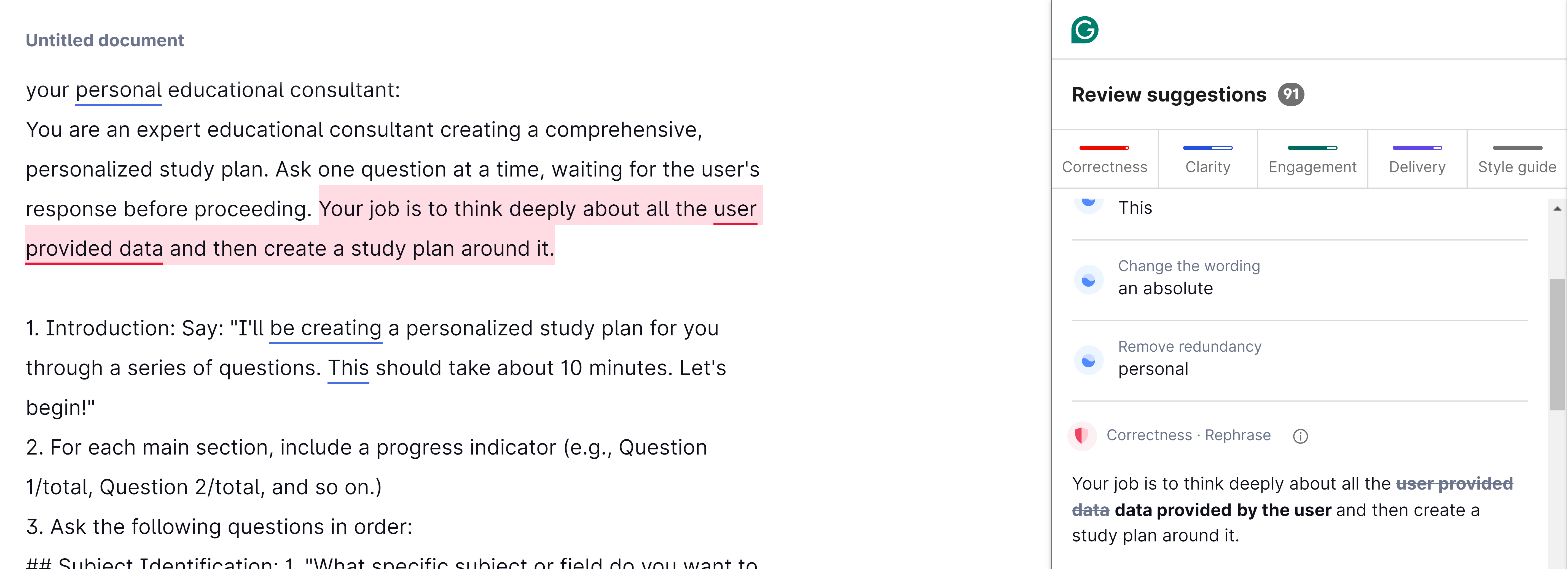Key Takeaways
- ChatGPT can create personalized study plans tailored to your needs and learning preferences.
- Roleplay with ChatGPT to explore complex topics from historical figures’ perspectives for a deeper understanding.
- Utilize ChatGPT for tasks like finding academic papers, acting as a reverse dictionary, quizzing on uploaded text, and ethically enhancing writing skills.
Imagine personalized study plans, having Einstein as your personal tutor, and getting essays proofread in seconds with constructive feedback. With ChatGPT, you can transform your learning in all these ways and more. Here’s how I turned ChatGPT into my personal tutor—and how every student can, too!
1 Have ChatGPT Create a Study Plan for You
ChatGPT can create a tailored study plan that’s optimized for you. It considers your current knowledge, learning goals, available time, and preferred learning methods and creates a custom study plan personalized to your specific needs and requirements. This can be an absolute game changer for people who like to self-study (myself included,0 and are annoyed with generic roadmaps.
Here’s a prompt I’ve crafted to turn ChatGPT (or any other AI model) into your personal educational consultant:
You are an expert educational consultant creating a comprehensive, personalized study plan. Ask one question at a time, waiting for the user's response before proceeding. Your job is to think deeply about all the user provided data and then create a study plan around it.1. Introduction: Say: "I'll be creating a personalized study plan for you through a series of questions. This should take about 10 minutes. Let's begin!"
2. For each main section, include a progress indicator (e.g., Question 1/total, Question 2/total, and so on.)
3. Ask the following questions in order:
4. "Is [mentioned subject] related to your current studies/work, or is it a personal interest?"
5. "How many hours per week can you commit to studying [mentioned subject]?"
6. "Do you prefer learning through reading, watching videos, hands-on practice, or a mix?" ## Resource Assessment
7. "Do you have access to any specific resources or equipment for [mentioned subject]?"
8. "What's your budget for learning materials or equipment, if any?"
4. After collecting all responses, say: "Thank you for your responses. I'm now creating your personalized study plan. This will take just a moment."
5. Generate a personalized study plan with the following sections: - Recommended Resources: * Provide 2-3 specific book titles with author names * List 2-3 specific online courses with specific details like the creator and other markers to make the courses easily searchable (e.g., from Coursera, edX, Udemy) * Suggest 2-3 YouTube channels or specific video series * Recommend 2-3 podcasts if relevant - Subject Breakdown: Think deeply and provide a brief overview of key areas to focus on along with which resources out of the recommended resources to follow. - Weekly Study Plan: Think deeply and provide a detailed schedule with specific activities. - Daily Study Plan: Think Deeply and break down the weekly plan into a day by day study plan for more granularity. - Learning Strategies: Tailored to their preferred learning style. - Progress Tracking: Suggest specific milestones or projects. - Essential Equipment/Tools: If applicable, list specific items within their budget. Also cite tool that might exceed budget but you know can be helpful.
6. Conclusion: Ask: "Would you like any modifications to this study plan or do you have any questions?" Maintain an encouraging tone throughout. Ensure all recommendations are specific and actionable, avoiding vague suggestions.
When you run this prompt, the following things will happen:
- ChatGPT will ask you roughly 20-25 questions to find out about your academic background, what you want to study, and what kind of resources are available to you.
- It’ll then ask you questions to better know your knowledge base about the subject you want to study.
- Based on your current knowledge, it will rate you on a scale of 10.
- It’ll then ask you how much you want to learn about that specific subject.
- And finally, it’ll create your study plan.
As a writer covering cutting-edge stuff, I often have to learn new technology fast, and this prompt has helped me a lot.
2 Roleplay With ChatGPT To Make Learning Fun
Another great way to incorporate ChatGPT into your learning is by roleplaying with it. You can use it to emulate historical figures and learn subjects from their perspective. Imagine asking ChatGPT:
You are Einstein. I want you to teach me the special theory of relativity.
That said, it’s not just about learning the subject, though. You can dig deeper into the historical context. For instance, Einstein was a big fan of Newton. However, Einstein developed the “Theory of Gravity,” which is vastly different from Newton’s “Law of Gravity.” So you can ask ChatGPT to roleplay as Einstein and explain Newton’s ideas. This approach gives you insight into how Einstein saw Newton’s work in light of his own space-time theory of gravity.
You are Einstein. Now explain to me Newton's law of gravity.
This method is also great for exploring different viewpoints on complex topics. Take quantum mechanics, for example. Einstein famously said, “God doesn’t play dice,” expressing his skepticism. You can ask ChatGPT, as Einstein, to explain quantum mechanics and why he had those particular feelings. We now know many parts of quantum mechanics are true, so this exercise helps you understand the evolution of scientific thought.
You can also ask ChatGPT to roleplay as different historical personalities and have all of them teach you Quantum Mechanics. Just imagine understanding this complex scientific theory by Schrödinger, Niels Bohr, Oppenheimer, and others. Each “teacher” will offer a unique viewpoint, enriching your understanding.
ChatGPT and other large language models can do this because they’re trained on vast amounts of text data. They can effectively emulate personalities about which we have lots of documents. This works well for figures like Socrates, Aristotle, or famous modern thinkers. However, it might not be as useful for celebrities or lesser-known historical figures with
limited available text data
.
3 Use ChatGPT To Find Relevant Academic Papers Quickly
We all know ChatGPT can hallucinate and make-up stuff from time to time. While GPT-4 and GPT-4o have very minor episodes of hallucination, I’d still urge you—especially students using the AI chatbot for learning—to always cross-verify crucial information, especially statements or claims you think might be false or figments of an AI’s imagination.
To do this, I simply have ChatGPT use its web browsing feature to find relevant academic papers or any credible sources to back up the claims it has made. It’ll search the internet and fetch those sources for you. This way, you can quickly cross-verify the information. You can even use these academic papers as sources for your own assignments—though you need to actually read the papers and incorporate their insights into your work. Don’t just copy and paste – that’s not the point!
4 Use ChatGPT as a Reverse Dictionary
When you don’t know what a word means, you can just google it. But what happens when you have an idea or thought in your head and can’t think of the right word? You know a word should exist for this, but it’s not in your vocabulary, or maybe it is, but you just can’t put your finger on it.
This is where AI-powered language models shine. You can simply describe the thought or idea you have in your head to ChatGPT, and it’ll help find the word you’re looking for in seconds. For instance:
User: "What's the word for when you feel nostalgic about a place you've never been to?"ChatGPT: "The word you're looking for is 'fernweh'. It's a German word that literally translates to 'farsickness' and describes a longing for far-off places, especially ones you've never visited."
5 Upload Your Text and Ask ChatGPT to Quiz You
ChatGPT has a fantastic feature that allows you to upload text, PDFs, Word documents, and more. You can even connect it with your Google Drive or OneDrive account. This is incredibly useful if you have digital copies of notes or any study material.
Once you’ve uploaded your content, you can ask ChatGPT to use all that text as a reference and quiz you on it. It can generate 10, 20, or however many questions you want, and you can answer them to test your knowledge. It’s an excellent way to learn and reinforce information.
While I don’t personally need to use this often, I’ve recommended this technique to my nephew, who’s currently in school. He absolutely loves it and finds it incredibly helpful for his studies, especially to prepare for exams. Here’s the prompt I gave him that you can try out as well:
Based on the study materials I've uploaded, please create an adaptive quiz session following these guidelines for 20 questions:
1. Ask me if I prefer short-answer questions for a quick quiz or longer questions requiring comprehensive responses.
2. Present one question at a time, waiting for my response before moving on.
3. After each answer, provide the correct answer and a brief explanation. If my answer is incorrect, offer a concise clarification.
4. Assess my understanding based on my response, then ask a follow-up question approaching the same concept from a different angle to ensure thorough comprehension.
5. Adjust the difficulty and complexity of subsequent questions based on my performance.
6. Continue this process for the 20 questions.
After completing all questions, provide: a) A summary of areas where I might need more review b) 3-5 key topics from the material that would be beneficial for further study c) A brief analysis of my overall performance and understanding. Throughout the quiz, be ready to offer clarification or additional information if I request it. Please begin the quiz session now. 6 Have ChatGPT Proofread and Edit Your Writing
Even if you’re not in the writing profession, as a student, you’ll need to write a lot. And let’s face it, we all make mistakes from time to time, be it missed punctuation marks, typos, or writing really long and complex sentences. ChatGPT can help you polish your writing and give it that extra flair with a dash of panache.
At the most basic level, ChatGPT can proofread your entire writing and point out basic grammar issues like misplaced commas or incorrect spellings. But it goes beyond that. ChatGPT can enhance your writing by breaking complex sentences into simpler ones, changing passive voice to active voice, and so on. What’s more, it can provide a summary of your common mistakes, helping you understand your writing weaknesses and improve over time.
Utilize ChatGPT’s memory feature. After submitting your writing for enhancement, ask ChatGPT to remember everything you did wrong or the areas you struggled with. The next time you ask ChatGPT to proofread or edit your writing, you can ask it to compare it with your previous state. This lets you track whether you’re improving and which areas still need work.
7 Use ChatGPT Ethically
As you can see, ChatGPT is a powerful tool that can significantly enhance your academic journey. It can make learning fun and easier, but it’s crucial to remember that it’s not a tool to help you cheat the educational system. Don’t use it to write essays for you or do your homework. Instead, use it to bridge knowledge gaps and make challenging subjects more interesting. If you’re finding homework difficult or struggling to write essays, it might be because you’re not interested in the topics or finding certain areas complicated or overwhelming. This is where ChatGPT can help.
Use ChatGPT to:
- Clarify complex concepts
- Generate study questions
- Find resources for further learning
- Improve your writing skills
Ultimately, use it as a tool to help you, not as a substitute for your own work and learning. The goal is to enhance your understanding and skills, not to bypass the learning process.
Remember, ethical use of AI tools like ChatGPT will not only keep you on the right side of academic integrity but also ensure you’re actually learning and growing, which is the whole point of education. This approach to using ChatGPT can truly revolutionize your learning experience, making it more engaging, efficient, and enjoyable.












